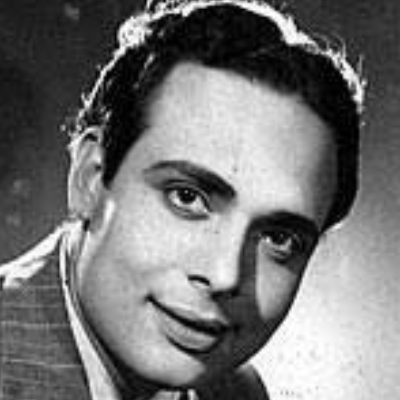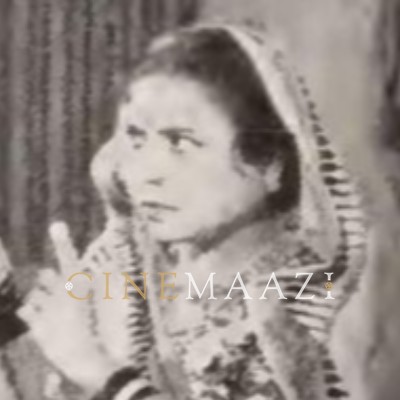Josh Malihabadi
Subscribe to read full article
This section is for paid subscribers only. Our subscription is only $37/- for one full year.
You get unlimited access to all paid section and features on the website with this subscription.
Not ready for a full subscription?
You can access this article for $2 , and have it saved to your account for one year.
- Real Name: Shabbir Hasan Khan
- Born: 5 December, 1898 (Malihabad, Lucknow, British India)
- Died: 22 February, 1982 (Islamabad, Pakistan)
- Primary Cinema: Hindi
- Children: Sajjad Haider, Saeedah Begum
- Grand Children: Farrukh Jamal Malihabadi, Tabassum Akhlaq
Noted scholar and literary critic Pervez Hoodbhoy said of Josh Malihabadi’s poetry: “Poetry flowed from Josh's pen like water from a bubbling spring.” Challenging the British with his fierce style of writing, the spirited Urdu poet, thinker, visionary and linguist Josh Malihabadi was known as the Shayar-e-Inquilaab or Poet of Revolution. His wealth of fiery verse—100,000 couplets and more than 1,000 rubaiyat—won him avid admirers including Jawaharlal Nehru, Sardar Patel, and Maulana Azad. His poetry was anti-establishment, anti-religiosity, and directly addressed those in power, thus being considered a blueprint for resistance writing. Winner of India's third highest civilian honour, the Padma Bhushan, in 1954, Malihabadi was also honoured with Pakistan’s highest civilian award, the Hilal-E-Imtiaz, after he migrated in 1956. As a lyricist in Hindi films, he penned songs for films such as Mun Ki Jeet (1944), Gulami (1945), and Prithviraj-Sanyukta (1946). He also wrote the lyrics for the film Aag Ka Darya (1966). His songs include Pardesi kyun yaad aata hai, Man kahe ghabraye, More jubna ka dekho, Aye watan mere watan, Bigdi meri banaa de, Aye chand ummidon ko, Jagmag hai sansar jyoti se tere jeevan ki, Aaj umango ki leharon par, and Chand sa mukhda muskaye.
He was born Shabbir Hasan Khan in Malihabad near Lucknow on 5 December, 1898, into an Urdu-speaking Muslim family of poets of Afridi Pathan origin. Receiving his early education in Arabic, Persian, Urdu and English at his home, he went on to study at St Peter's College, Agra, passing his Senior Cambridge examination in 1914. Studying Arabic and Persian, in 1918 he also spent six months at Tagore's university at Shantiniketan.
With his father’s demise cutting short his plans of acquiring a college education, he started work in 1925 at the Osmania University in Hyderabad, supervising translation work. It didn’t last, as he was exiled from the princely state for penning a nazm against the ruler, the Nizam of Hyderabad. He was a keen student of languages who studied Persian and Arabic for a time. Adopting the nom de plume Josh Malihabadi in honour of his birthplace, much of his writing was in the form of ghazals or nazms. He went on to found Kaleem, a magazine for which he penned pro-Independence articles. He won the title Shayar-e-Inquilaab or Poet of the Revolution by virtue of his poem, Hussain Aur Inquilab. Known for defying dogmas and British colonial rulers, he was respected for his social vision and the richness of his poetic work. He is one of the finest Urdu poets who stood up for the oppressed. Becoming involved in the freedom struggle in an intellectual capacity, he became acquainted with some of the political leaders of the time, including Jawaharlal Nehru. He became the editor of the publication Aaj-Kal, after India gained Independence from Britain in 1947.
Stepping into the film world, he wrote songs and dialogues for films between 1943 and 1948. He penned lyrics for songs in films such as Man Ki Jeet (1944), Ghulami (1945), Prithviraj Samyukta (1946), Shahzadi (1947) and Doraha (1952). Among the songs he penned are Pardesi kyu yad aata hai, Ae chaand ummidon ko, Man kahe ghabraye, More jubna ka dekho, Aye watan mere watan, Bigdi meri banaa de, Jagmag hai sansar jyoti se tere jeevan ki, Aaj umango ki leharo par, and Chand sa mukhda muskaye.
Remaining an Indian citizen until 1956, he then chose to migrate to Pakistan and take on Pakistani citizenship—much against Nehru’s wishes. He was apparently concerned about his own future and that of the Urdu language in India, in the largely Hindi-speaking country. Post migration, he settled in Karachi and worked for Anjuman-i-Tarraqi-i-Urdu, an organisation that worked for the promotion and dissemination of Urdu language, literature and culture. As well as having collections of poetry published, he also penned songs for films produced by Shalimar Pictures. A very proper and respectful writer of Urdu, he insisted on the purity of the language being maintained. While his subject matter varied, it often included lyrical, romantic pieces. Some of his works were translated into English such as The Unity of Mankind elegies translated by Syed Akbar Pasha Tirmizi, a Pakistani High Court advocate. Malihabadi’s last published work is his autobiography, Yaadon Ki Baraat (A Procession of Memories). Despite being hailed by critics as a masterpiece, it upset some sections of the moral brigade.
Malihabadi remained fiery and brutally honest, refusing to compromise his ideals and ideologies which proved to be a dangerous thing with authoritarian leadership. The doyen of leftist Urdu writers in Pakistan, he remained a controversial figure, even facing bans for his anti-establishment views.
Later in life, he mourned the passing of the good old era of music, as well as that of traditional dance including the disappearance of the traditional tawaif or nautch-girl. Labelling film songs of modern times as third-rate, he claimed that poetry in film songs was long dead. Among Indian writers, his favourites were Kunwar Mahinder Singh Bedi, Firaq Gorakhpuri, Sahir Ludhianvi and Krishan Chander.
Josh Malihabadi passed away on 22 February, 1982 in Islamabad. After his funeral, renowned poet Faiz Ahmad Faiz declared, ‘No greater person will be buried in this land ever again’. Josh Malihabadi’s maternal grandson Farrukh Jamal Malihabadi, and his granddaughter Tabassum Akhlaq have carried on the legacy of his poetry. Josh: Mere Baba — Shakhs Aur Shaaer by Farrukh is an attempt to bring to light those aspects of Malihabadi’s life and work that had either not been discovered or purposely concealed to prevent the poet from getting his due. The Josh Literary Society of Canada (JLSC) was also formed in February 1983 in Calgary, Canada to keep alive his literary work.
Malihabadi’s poetic works include Aawaz-e-Haq (1921), Shola-o-Shabnam, Junoon-o-Hikmat, Aayat-o-Naghmaat (1941), Sumoom-o-Saba, Mauja-e-Fikr, and Irfaniyat-e-Josh. One of his verses that best describes him is:
Kaam hai mera taghayyur, Naam hai mera shabaab
Mera naara: inquilab-o-inquilab-o-inquilab
(My task is change, my name is youth!
My slogan: revolution, revolution and revolution!)









.jpg)



